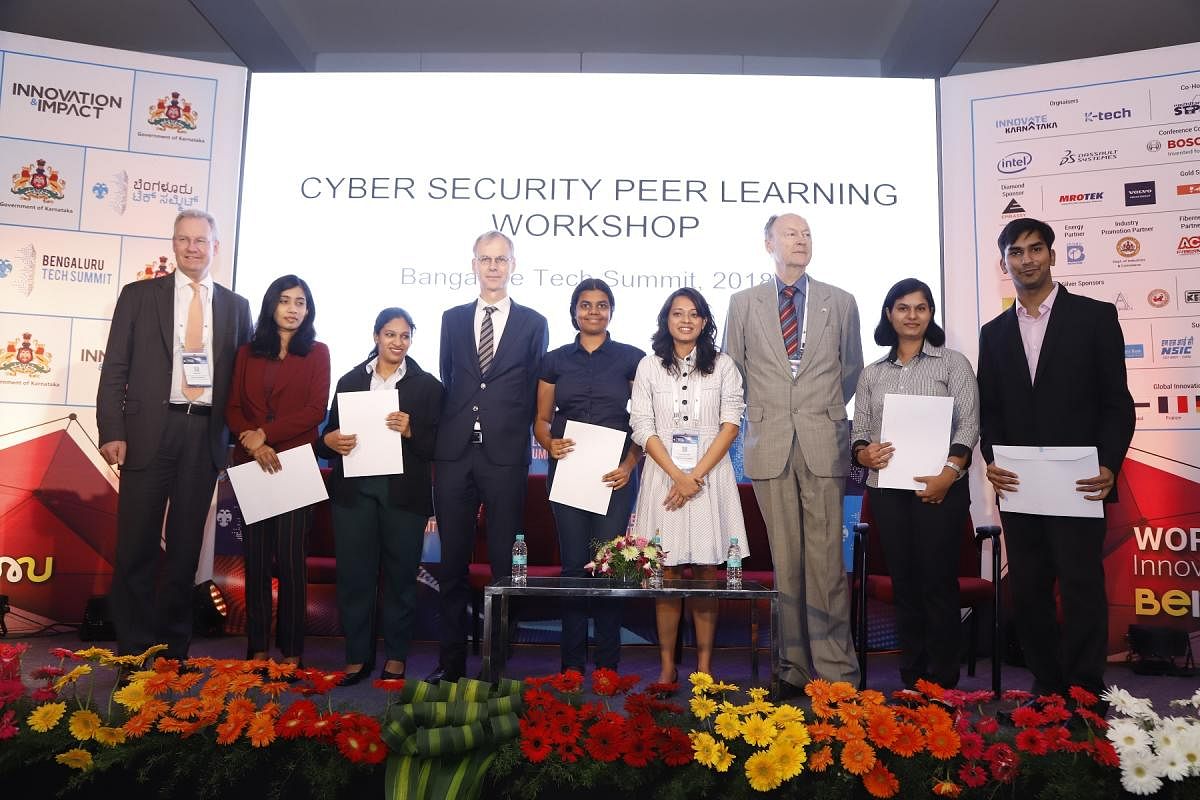
Cybersecurity, projected to be a $200 billion market in the next five years, came under focus for more than just data protection as students of IIIT-B took the stage to highlight the problems posed by fake news.
Five students of International Institute of Information Technology-Bengaluru (IIIT-B), who took part in the Hague India Cyber Security Summer School in the Netherlands, spoke about the rising threat of fake news in the era of social media.
Shashank Motepalli, one of the participants in the workshop on cybersecurity, said social media users should be warned about misinformation, often spread deliberately, in the form of news.
“In the Indian ecosystem, the huge amount of information in local languages has made it difficult to weed out fake news,” he said.
Vadari Dakshayani, another student, stressed the need to understand the ramifications of fake news and the need to control it.
“Cybersecurity is also about ethics and policy. It is important to spread awareness on the need to evaluate the information we get on social media,” she said.
Shashank said there was a need for developing a cybersecurity policy and balance it in such a way that the rules do not curtail freedom
of speech. He noted that unscrupulous elements can target individuals on social media to build an echo-chamber where opposing views are blocked.